Doves, often celebrated for their graceful flight and gentle demeanor, are captivating migratory birds that hold a special place in the avian world. Known for their distinctive cooing calls and swift aerial maneuvers, these migratory birds traverse vast distances during their annual migrations, captivating the hearts of birdwatchers and nature enthusiasts alike.
With their penchant for gathering in large flocks, doves create mesmerizing spectacles in the sky, especially when spotted in their preferred habitats such as the serene dove fields. In these expanses, one can witness the beauty and harmony of nature as enough birds gather in abundance, offering a glimpse into the intricate tapestry of avian life.
When it comes to dove hunting, having the right hunting companion can make all the difference. That’s where a well-trained and suitable dog comes in. Dogs have been used for hunting for centuries, and their instinct and skills can greatly enhance the effectiveness and enjoyment of dove hunting.
In this article, we will explore the various types of breed and characteristics of dogs that are ideal for dove hunting, as well as the training techniques that will help you develop a reliable hunting partner. So, whether you are a seasoned dove hunter or just starting out, read on to discover the perfect four-legged companion for your next dove hunting expedition during the dove season.
Why do Hunters Shoot Doves?
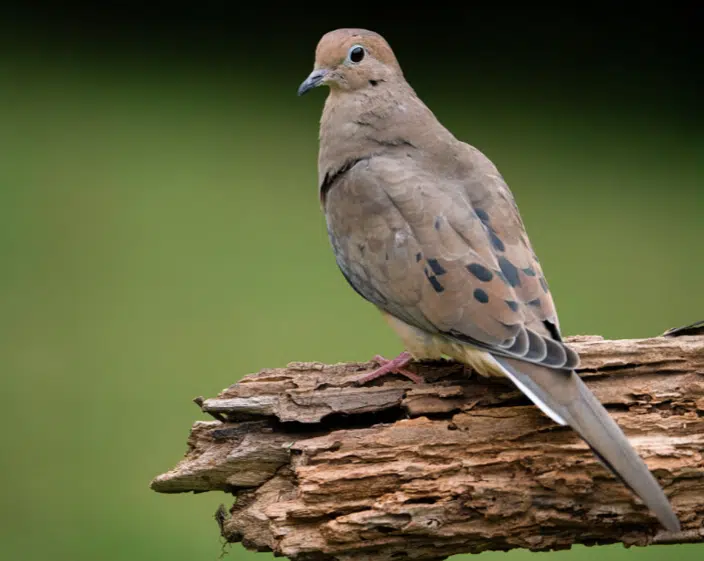
Hunters pursue doves for various reasons, each tied to tradition, sport, and conservation management. While some may see it simply as a recreational activity, others view it as an integral part of wildlife management and conservation efforts.
Doves are a popular game bird among hunters due to their abundance, widespread distribution, and challenging flight patterns, which demand keen marksmanship and skill. Moreover, hunting doves provides an opportunity for individuals to connect with nature, engage in outdoor pursuits, and foster camaraderie with fellow enthusiasts.
Beyond the recreational aspect, dove hunting also serves ecological purposes, as it helps regulate dove populations, preventing overpopulation that could lead to habitat degradation and resource competition.
The revenue generated from hunting licenses and fees often goes towards funding conservation programs, habitat restoration, and research initiatives aimed at preserving dove populations and their ecosystems.
While the act of shooting doves may seem contentious to some, for many hunters, it represents a time-honored tradition deeply intertwined with principles of wildlife stewardship and environmental sustainability
Dog Breeds Ideal for Dove Hunting
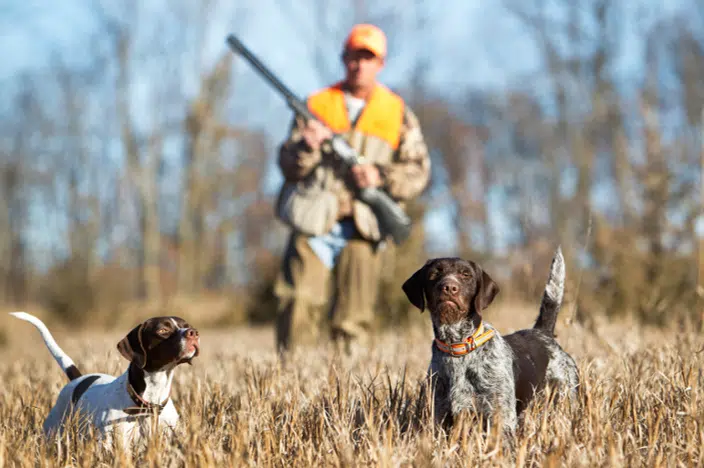
Pointing breeds
These breeds are highly sought after for dove hunting during dove season due to their natural ability to locate and freeze when they detect game birds. These dogs typically have a strong sense of smell and can track and pinpoint the location of doves in the field. Some popular types for dove hunting include:
-
German Shorthaired Pointer: A versatile hunter dog, the German Shorthaired Pointer is highly regarded for its ability to track, aim, and retrieve game. They are energetic and agile dogs, making them ideal for dove hunting in various terrains.
-
English Springer Spaniel: These dogs have a strong bird drive and are known for their ability to flush out and chase doves. English Springer Spaniel have a gentle temperament and are great additions to any dove hunting excursion.
-
Brittany Spaniel: The Brittany Spaniel is a breed that excels in retrieving as well. They are highly energetic and have excellent instincts, making them reliable hunting partners in the dove field.
-
English Setter: English Setters are well-known for their stylish point and effective flushing abilities. With their long, elegant coat and natural hunting instincts, they can locate and flush out doves from heavy cover, giving hunters the chance to take the shot.
Retrieving Breeds
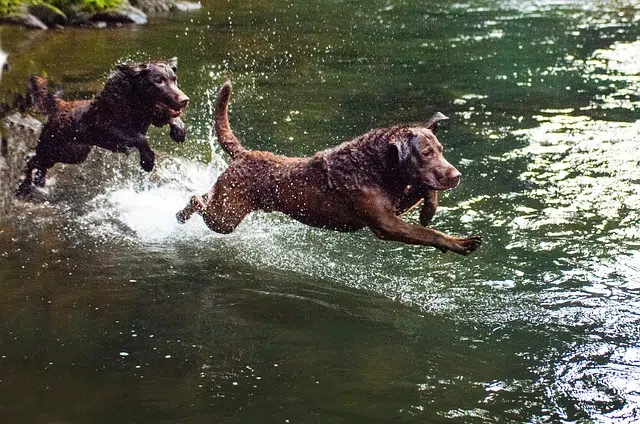
While these excel at locating and indicating the presence of doves, breeds are known for their ability to retrieve downed birds. These dogs have a natural desire to fetch and bring back game to their handlers. Here are some popular ones that are well-suited for dove hunting:
-
Golden Retriever: Golden Retrievers are known for their friendly and gentle nature, making them great family pets as well as reliable hunting companions. They excel at getting back downed doves from water or land and have a strong work ethic.
-
Chesapeake Bay Retriever: This breed is well-suited for dove hunting, especially in waterfowl environments. Chesapeake Bay Retrievers have a thick waterproof coat and webbed feet that enable them to navigate through marshes and retrieve ducks, making them a versatile choice for dove hunters.
-
Flat-Coated Retriever: Flat-Coated Retrievers are known for their intelligence and willingness to work. They have a natural instinct for fetching and are highly capable in this field. With their solid build and excellent swimming abilities, they can retrieve doves from water or land with ease.
Flushing Breeds
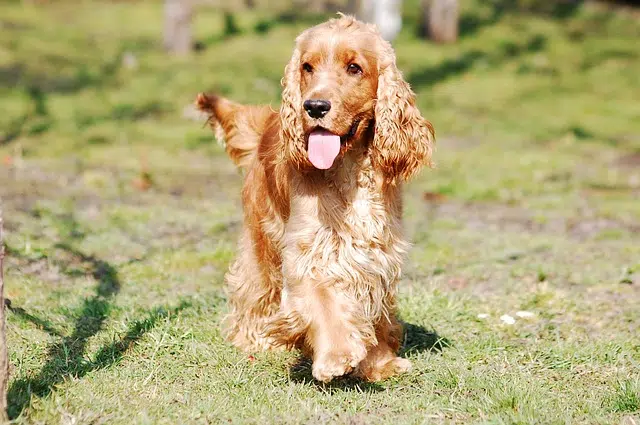
Flushing Dogs are known for their ability to flush out birds from their hiding spots and make them take flight. These dogs have a keen sense of smell and are skilled at finding and flushing doves in dense cover. Here are some popular ones that are well-suited for hunting:
-
English Cocker Spaniel: These dogs are known for their excellent scenting ability and enthusiasm in the field. English Cocker Spaniels have a small, compact build and can navigate through thick cover to flush out doves for hunters.
-
Labrador Retriever: Labradors are versatile dogs that can excel in both retriever and flushing. They have a strong nose and can locate hidden doves and flush them out for the hunter. With their friendly and dependable nature, Labradors make excellent hunting companions.
-
Boykin Spaniel: Boykin Spaniels are compact but highly skilled retrievers. They have a strong desire to please their handlers and are known for their enthusiasm and stamina. They can retrieve doves over various terrains, making them a reliable choice for dove hunting.
Training Techniques for Better Dove Hunting
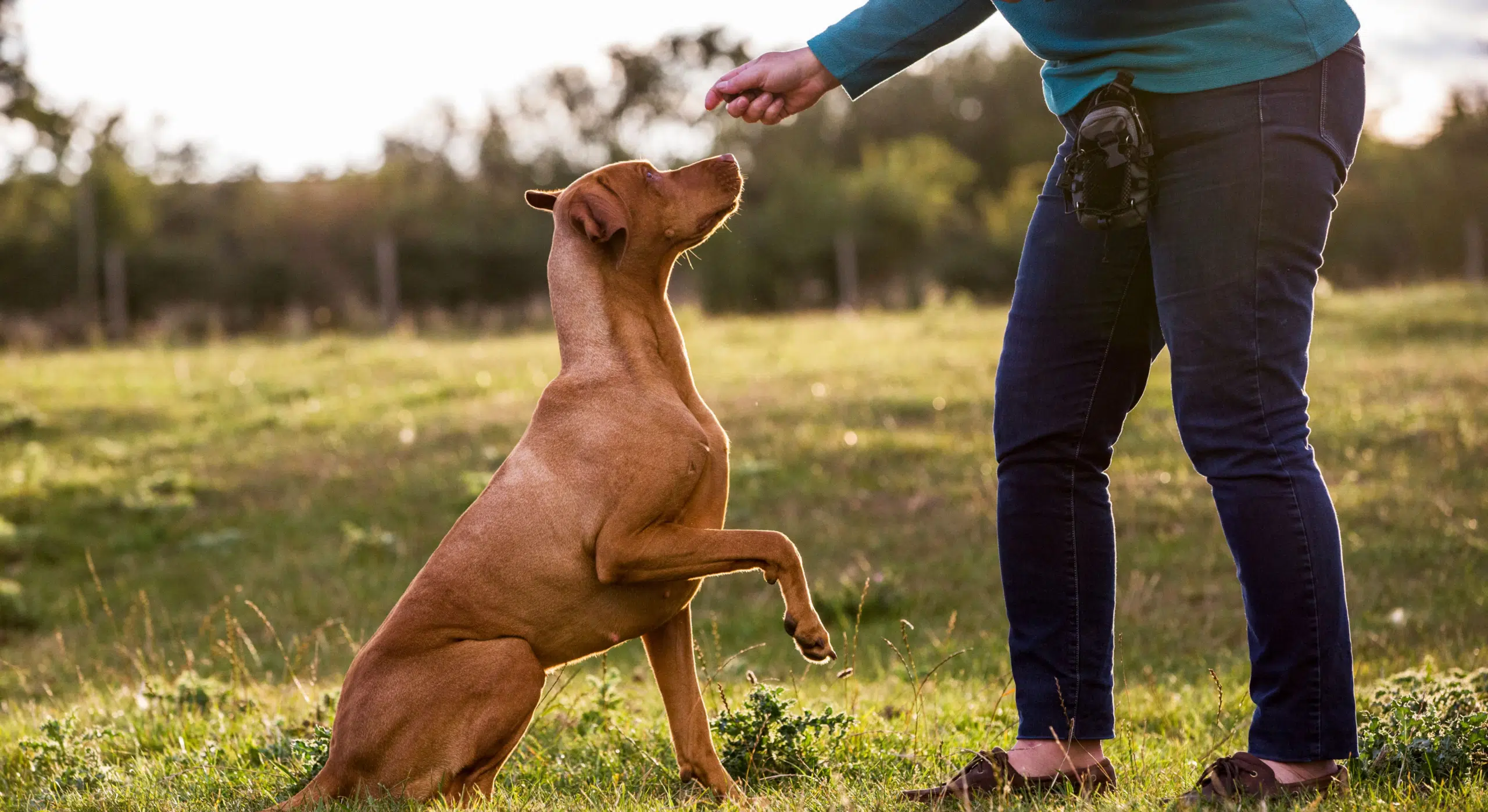
To ensure that your dog becomes a reliable hunting partner it is essential to invest time and effort into their training. Here are some effective training techniques to develop a well-trained and dependable hunting dog:
Basic Obedience Training
Establishing a strong foundation of obedience is crucial for developing a reliable hunting partner. Begin with fundamental commands such as sit, stay, come, and heel. Consistent repetition and positive reinforcement are key to instilling these commands effectively.
By mastering basic obedience, your dog learns to respond promptly to your instructions, laying the groundwork for more advanced training tailored to dove hunting.
Introduction to Gunfire
Familiarizing your dog with the sound of gunfire is essential for their comfort and confidence during hunting expeditions. Start this process gradually, exposing them to recorded gunshots at a low volume.
As your dog becomes accustomed to the sound, gradually increase the volume while simultaneously providing positive reinforcement such as treats or praise. This positive association helps your dog understand that gunfire is not alarming but rather signals an enjoyable and rewarding experience.
Bird Introduction
Introducing your dog to birds early in their training instills a natural curiosity and enthusiasm for the hunting process. Begin with non-threatening stimuli, such as dead birds, allowing your dog to familiarize themselves with the scent and texture.
Progress to live birds, gradually increasing their exposure to the excitement of the hunt. This gradual approach builds your dog’s anticipation and ensures they associate birds with the thrill of the chase, laying the foundation for successful dove hunting.
Scent Training
Harnessing your dog’s keen sense of smell through scent training is instrumental in developing their ability to locate and point out doves in the field. Start by introducing scent dummies or dove wings in your hunting area, encouraging your dog to use their nose to track down the hidden objects.
Reward successful scent identification with treats or praise, reinforcing the connection between scent and reward. Through consistent practice, your dog learns to rely on their olfactory senses to pinpoint the presence of doves, enhancing their effectiveness as a hunting partner.
Retrieving training for dove hunting
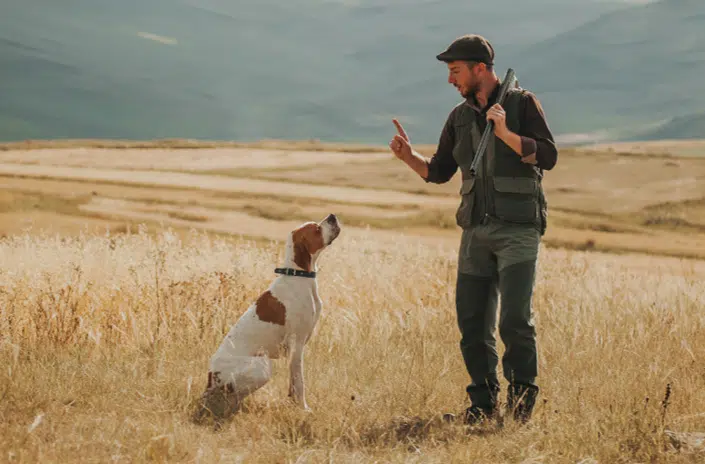
Training is an essential aspect of preparing your dog for dove hunting. Here are some techniques to help develop your dog’s fetching skills:
-
Fetch command
Introducing your dog to the fetch command lays the foundation for effective retrieving during dove hunting. Begin by teaching your puppy to associate the command “fetch” or “retrieve” with picking up and bringing back objects to you.
Start with simple items like toys or balls, gradually progressing to dummies resembling doves. Consistent repetition and positive reinforcement help reinforce the desired behavior, shaping your dog’s understanding of their retrieving role in the hunt.
-
Marking drills
Marking drills play a crucial role in honing your dog’s ability to locate and retrieve fallen birds accurately. Initiate these drills by placing a dummy or a dead bird a short distance away and prompting your dog to retrieve it upon command.
As your dog becomes proficient, increase the distance and complexity of the marks, replicating real hunting scenarios. Through repetition and reinforcement, your dog learns to remember the location of downed birds, enhancing their effectiveness in the field.
-
Blind retrieves
Blind retrieves simulate hunting scenarios where birds fall out of sight, challenging your dog to rely on cues from you to locate and retrieve them. Set up scenarios by hiding dummies or birds in unseen locations and sending your dog to retrieve them using hand signals or voice commands.
This exercise strengthens your dog’s responsiveness to your directives and prepares them for retrieving birds they haven’t seen fall, a common occurrence in dove hunting.
-
Water retrieves:
Water retrieves are vital skills for dove hunting, as birds often fall into bodies of water. Training your dog to retrieve in water begins with gentle introduction and encouragement. Start in shallow water, gradually increasing depth as your dog gains confidence.
-
Emphasize positive reinforcement to associate water retrieves with positive experiences. Dogs proficient in water retrieves contribute significantly to successful dove hunts, retrieving downed birds, locating wounded prey, and even flushing out birds from hiding spots near water sources.
Field Training
Take your dog to the field to practice their hunting skills. Here are a few techniques to incorporate into your field training:
Simulated hunts with Decoys
Set up simulated dove hunting scenarios by using stationary decoys and having friends or family members scatter them in a field. This will help your dog get accustomed to the sights and sounds of a hunting environment, as well as practice their skills in locating and reclaim doves.
Shooting practice
Familiarize your dog with the sound of gun by taking them to a shooting range or an area where you can safely discharge a gun Start with the sound of a blank pistol and gradually introduce them to real gun blasts.
This will help prevent them from being startled or frightened during a real hunting trip. When you shoot a bird in real life, your dog will better be able to instigate the situation and be adept to gun shots. Once you shoot, wait for the dog to comprehend the commands provided and remain calm.
It is very crucial that you let the dog establish an understanding of what actions to perform after you shoot.
Hunting commands
Train your dog to respond to specific commands while you hunt such as “hunt,” “find,” and “flush.” These commands will signal your dog to search for the bird, locate them, and either flush them out or retrieve them, depending on their training.
Consistent use of these commands during field training will reinforce your dog’s understanding of their role in the hunt.
Distance control
Work on distance control with your dog, which can greatly enhance your experience and increase your chances of success. And one of the most valuable assets a dove hunter can have is a well-trained and reliable dog.
These four-legged companions are not only great company, but they also have a keen sense of smell and exceptional fetching skills that can make a world of difference in your expeditions.
Tips for Selecting a Suitable Dove Dog
-
Evaluating the dog’s temperament, energy level, and natural instincts
When selecting a Dove dog , there are several factors to consider. Here are some tips to help you choose a suitable hunt companion:
-
Temperament: Look for a dog with a calm and stable temperament. They should be able to handle the excitement and noise of a related environment without becoming overly anxious or aggressive.
A well-behaved and obedient dog will be easier to train and will be a valuable asset in the field.
-
Energy level: Activities like these can be physically demanding, requiring dogs to be active and agile. Consider the energy level of the dog breed you are interested in and ensure that it aligns with your style.
High-energy dogs such as Labrador Retrievers and German Shorthaired Pointers are popular choices due to their endurance and stamina. It is also seen that certain larger dogs show resilient nature as compared to puppy stage.
-
Natural instincts: Different dogs have different natural instincts that can be beneficial. For example, breed like English Setters and Vizslas have a natural instinct to point and hold game, while Chesapeake Bay Retrievers and Golden Retrievers excel in finding and fetching of a bird.
Consider the type of hunting you plan to do and choose a breed that aligns with those instincts.
Consulting Experienced Hunters and Breeders
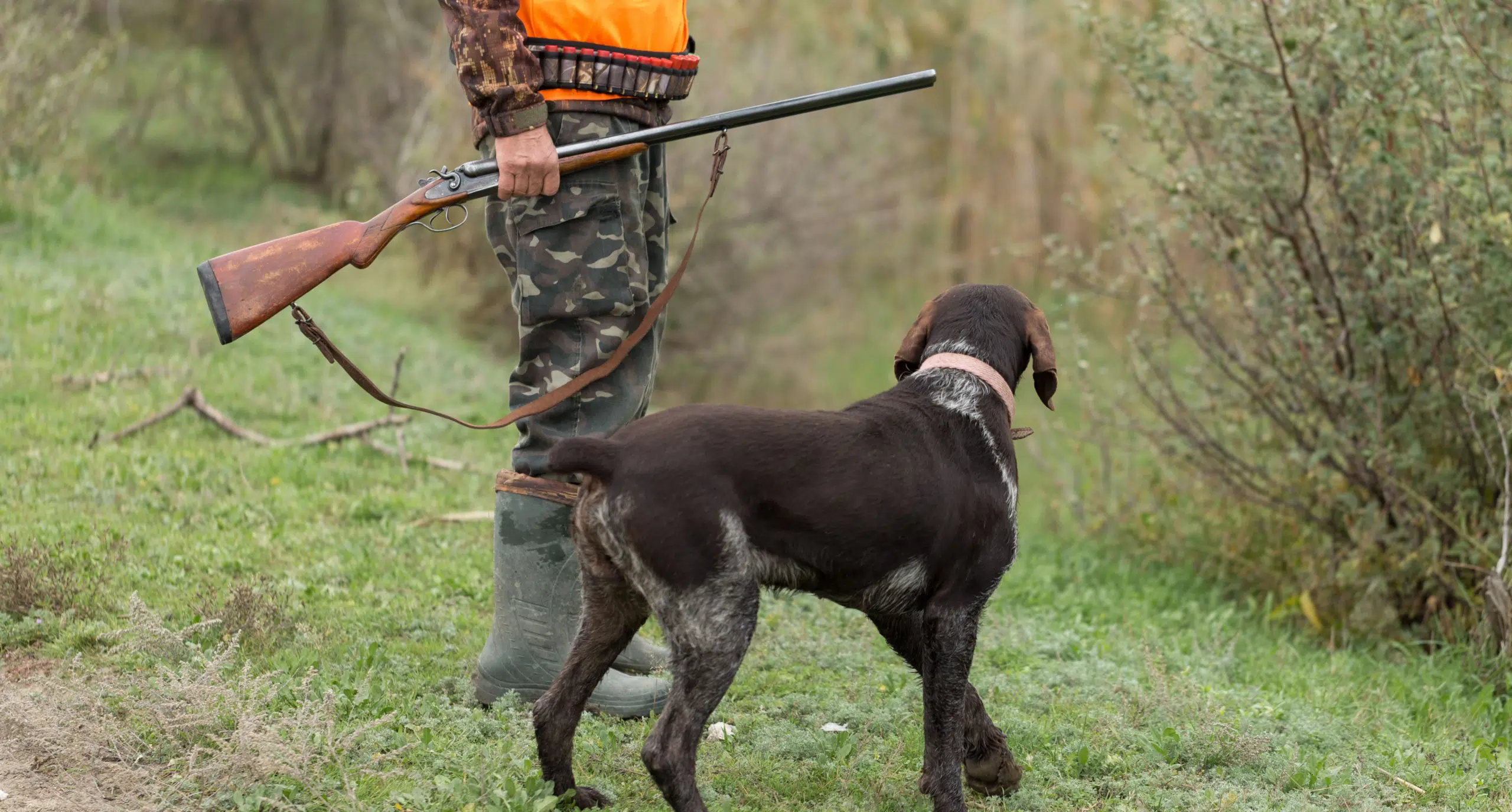
One of the best ways to find a suitable dog is to seek advice from experienced hunters and breeders. They have firsthand knowledge and can provide valuable insights about specific breeds that excel in dove hunt.
They can also guide you in selecting a dog with the right temperament, energy level, and natural instincts for the job.
Training and socialization
Training and socialization are paramount aspects of preparing a dove hunting dog for the field. Once you’ve selected the appropriate breed and welcomed your new companion home, dedicating time and effort to training and socializing them becomes imperative.
Proper training instills a clear understanding of the dog’s role in the hunt and ensures they can follow commands reliably.
Socialization exposes the dog to various environments, people, and other animals, helping them remain calm and focused during the excitement of the hunt.
Size
Consideration of size is essential when choosing a dove hunting dog.
While larger breeds may excel in retrieving downed birds, smaller bird dogs offer agility and maneuverability, especially in dense vegetation.
Assessing the hunting environment and terrain you’ll encounter aids in determining the ideal size for your hunting companion, ensuring they can navigate effectively while performing their duties.
Health
Maintaining good health is fundamental for any hunting dog. Selecting a breed known for overall health and screening for genetic conditions are crucial steps.
Regular veterinary check-ups and a balanced diet support the dog’s physical condition, enabling them to perform optimally in the field.
Adaptability
Dogs for dove hunting should be adaptable to different hunting environments. They should be able to handle varying weather conditions, such as extreme heat or cold, as well as different types of terrain like marshes, fields, or wooded areas.
Consider the breed’s adaptability and their ability to hunt in different conditions. the best timings as considered by experts to practice training is morning or evening hours. look for good area to begin training your dog. these should include a shady spot for the dog to rest if being trained during morning hours.
A Panting dog is unable to comprehend its surroundings hence it is necessary that you conduct training in sessions. Initially, these sessions of shooting birds and fetching them should be of small time frames like two hours.
Forming a bond
Forming a strong bond between hunter and dog is foundational for successful dove hunting. Spending quality time together both during and outside of hunting season cultivates trust and understanding.
This bond enhances the dog’s responsiveness to commands and strengthens their performance in the field, ultimately contributing to a rewarding hunting experience for both dog and handler
Conclusion
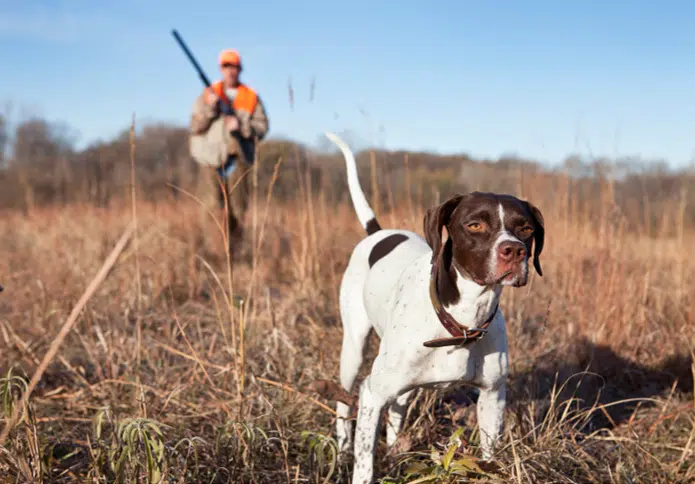
Having a well-trained and suitable dog by your side can greatly enhance the effectiveness and enjoyment of dove hunting. Whether you prefer any of these breed or other dogs, there are plenty of options to choose from when selecting the perfect four-legged companion for your adventures.
By investing time and effort into training your dog for the first big successful hunt and selecting a breed for your dove hunt that aligns with your style and preferences, you can develop a reliable partner that will make your dove hunting expeditions more successful and memorable. So, whether you’re a seasoned hunter or just starting out, consider adding a hunting dog to your team. This hunting guide was aimed at providing valuable insight for novice hunters.

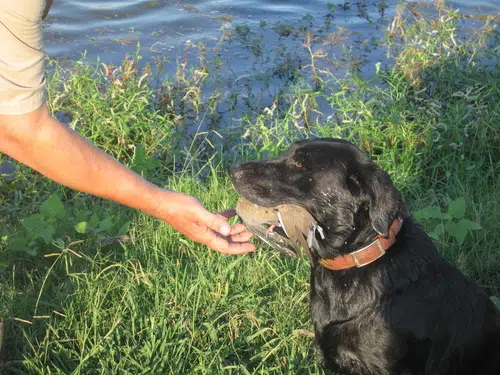

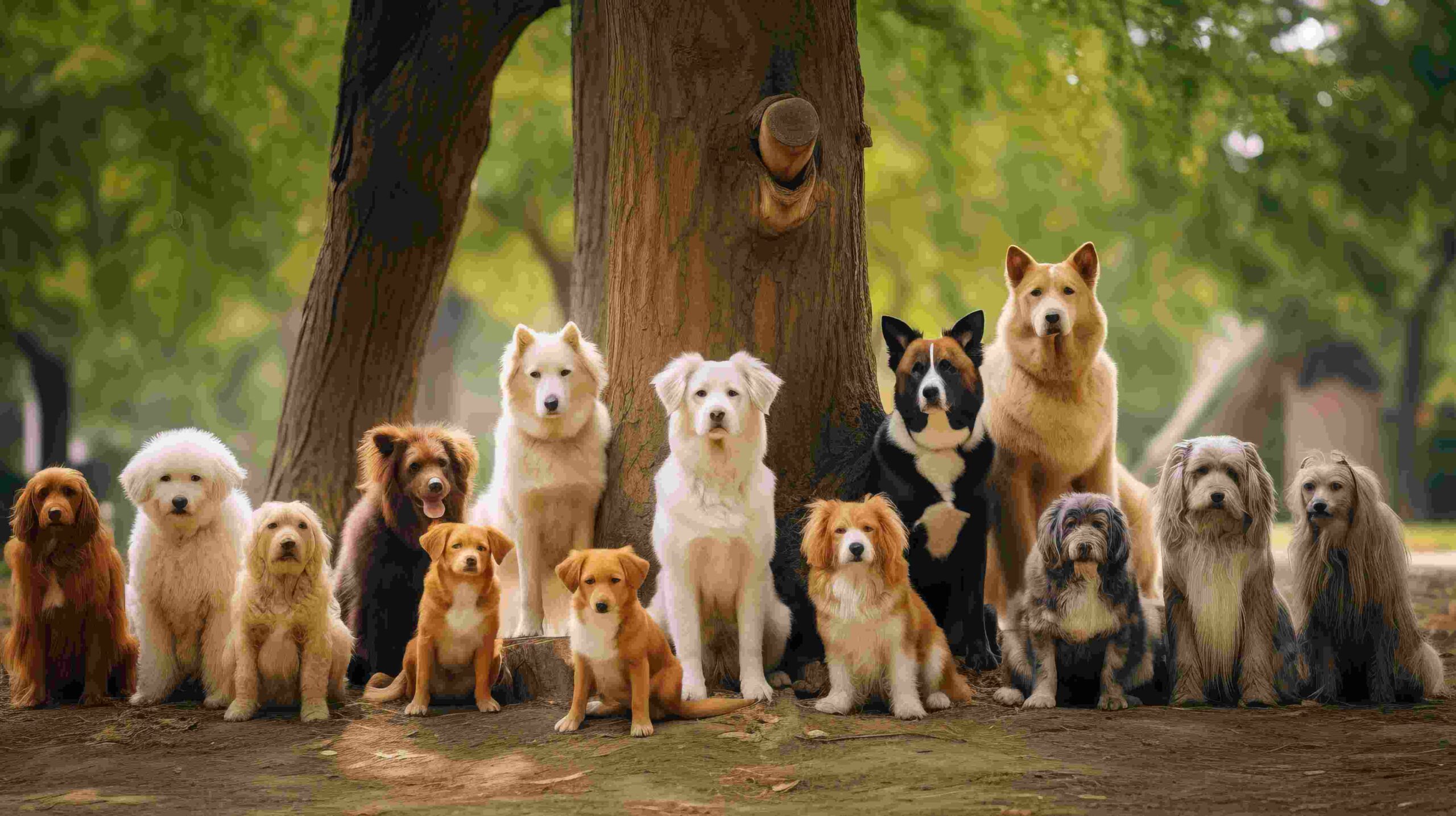
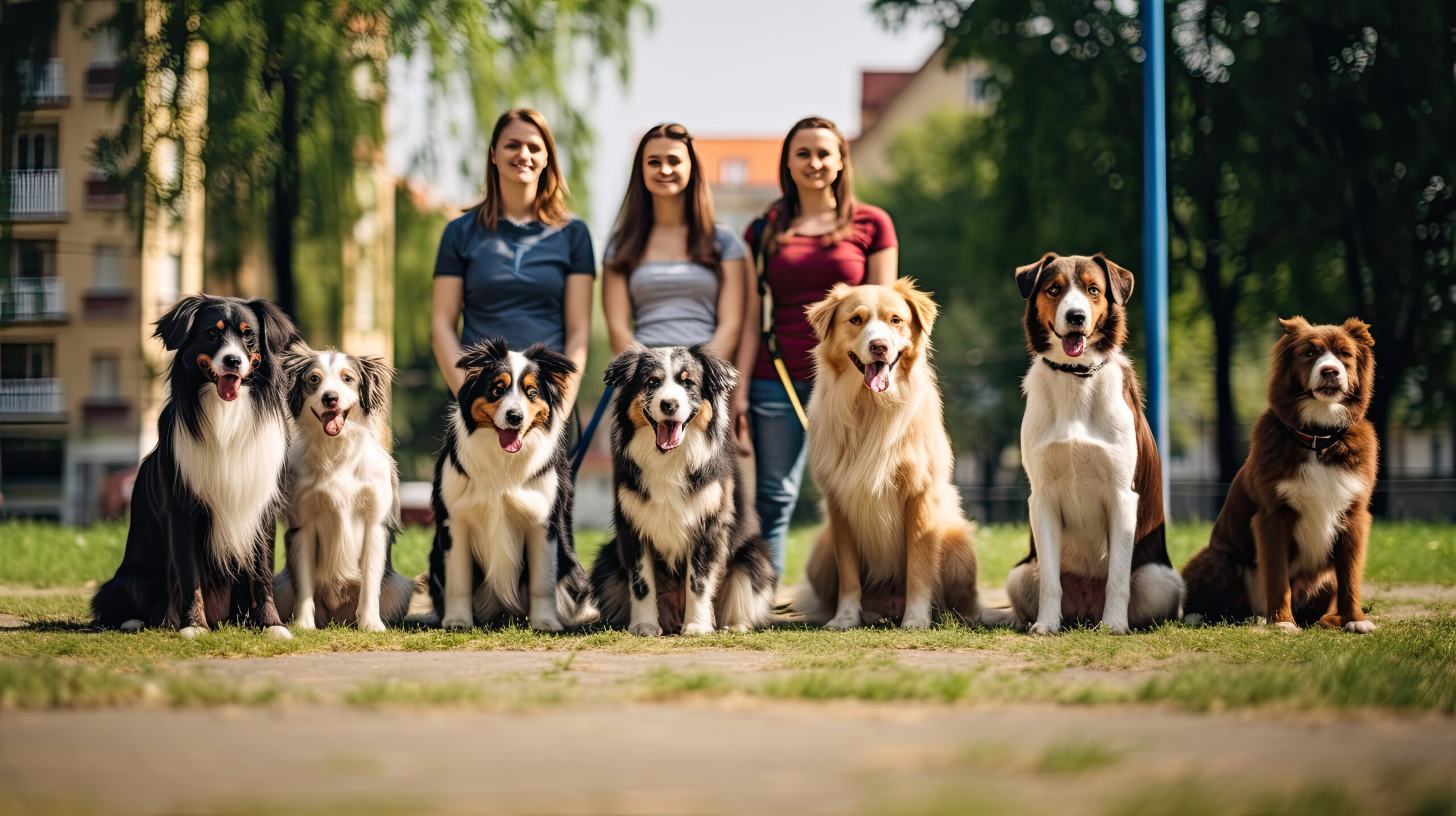
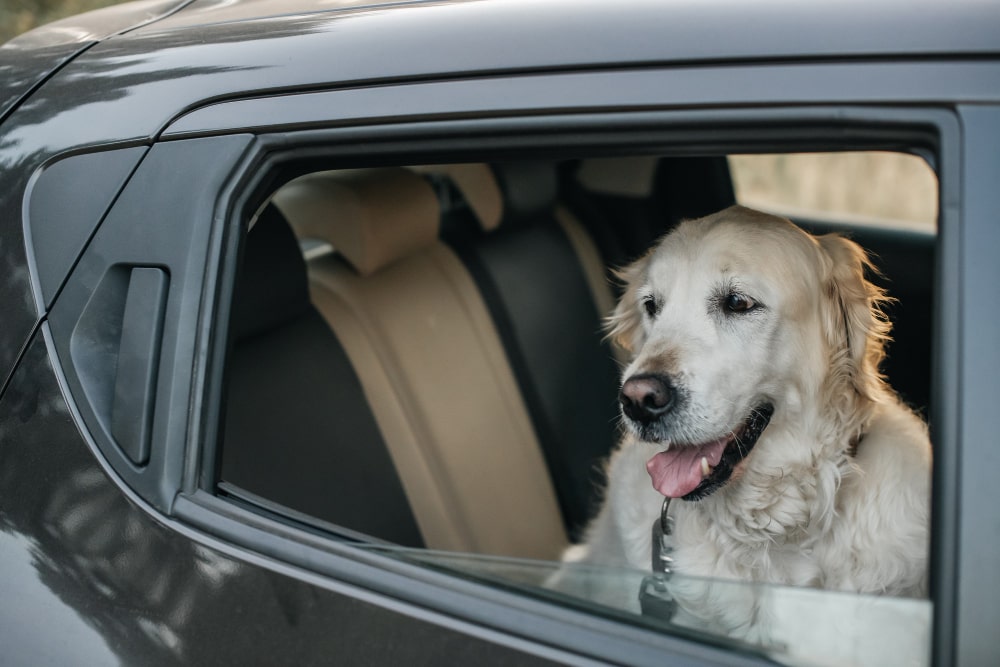
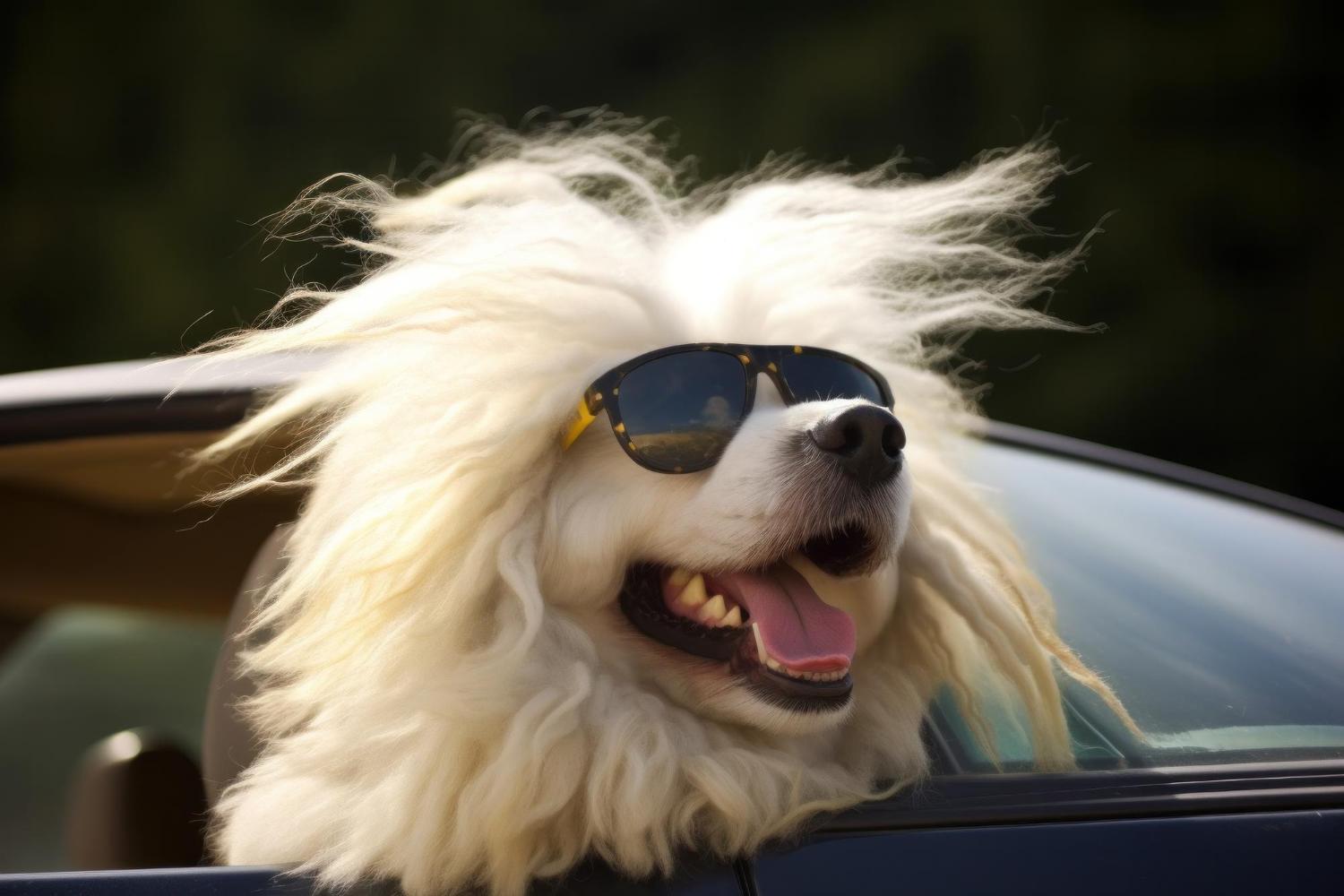
Get involved!
Comments